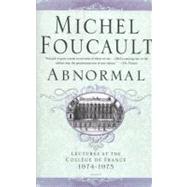
What is included with this book?
| Foreword | |||||
|
xi | ||||
| Introduction | |||||
|
xvii | ||||
| one 8 JANUARY 1975 | 1 | (30) | |||
|
|||||
|
|||||
|
|||||
|
|||||
|
|||||
|
|||||
|
|||||
|
|||||
|
|||||
|
|||||
|
|||||
|
|||||
| two 15 JANUARY 1975 | 31 | (24) | |||
|
|||||
|
|||||
|
|||||
|
|||||
|
|||||
|
|||||
|
|||||
|
|||||
|
|||||
|
|||||
|
|||||
| three 22 JANUARY 1975 | 55 | (26) | |||
|
|||||
|
|||||
|
|||||
|
|||||
|
|||||
|
|||||
|
|||||
|
|||||
|
|||||
| four 29 JANUARY 1975 | 81 | (28) | |||
|
|||||
|
|||||
|
|||||
|
|||||
|
|||||
|
|||||
|
|||||
|
|||||
|
|||||
| five 5 FEBRUARY 1975 | 109 | (28) | |||
|
|||||
|
|||||
|
|||||
|
|||||
|
|||||
|
|||||
|
|||||
|
|||||
|
|||||
| six 12 FEBRUARY 1975 | 137 | (30) | |||
|
|||||
|
|||||
|
|||||
|
|||||
|
|||||
|
|||||
|
|||||
|
|||||
| seven 19 FEBRUARY 1975 | 167 | (34) | |||
|
|||||
|
|||||
|
|||||
|
|||||
|
|||||
|
|||||
|
|||||
|
|||||
|
|||||
|
|||||
| eight 26 FEBRUARY 1975 | 201 | (30) | |||
|
|||||
|
|||||
|
|||||
|
|||||
|
|||||
|
|||||
|
|||||
|
|||||
| nine 5 MARCH 1975 | 231 | (32) | |||
|
|||||
|
|||||
|
|||||
|
|||||
|
|||||
|
|||||
|
|||||
|
|||||
|
|||||
|
|||||
| ten 12 MARCH 1975 | 263 | (28) | |||
|
|||||
|
|||||
|
|||||
|
|||||
|
|||||
|
|||||
|
|||||
|
|||||
|
|||||
| eleven 19 MARCH 1975 | 291 | (32) | |||
|
|||||
|
|||||
|
|||||
|
|||||
|
|||||
|
|||||
| Course Summary | 323 | (8) | |||
| Course Context | 331 | (26) | |||
| Index of Notions and Concepts | 357 | (12) | |||
| Index of Names | 369 |
The New copy of this book will include any supplemental materials advertised. Please check the title of the book to determine if it should include any access cards, study guides, lab manuals, CDs, etc.
The Used, Rental and eBook copies of this book are not guaranteed to include any supplemental materials. Typically, only the book itself is included. This is true even if the title states it includes any access cards, study guides, lab manuals, CDs, etc.